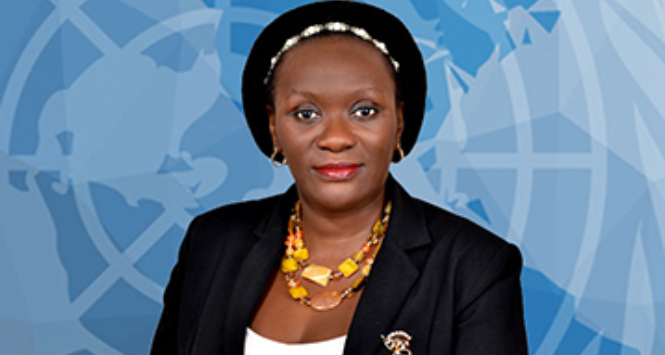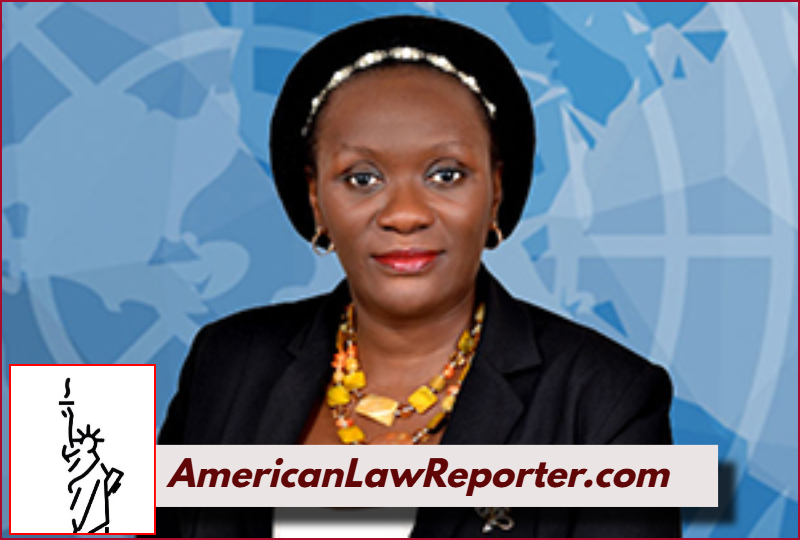Lydia Mugambe, a United Nations judge and Ugandan High Court justice, has been convicted of multiple offenses under the UK’s Modern Slavery Act 2015.
The 49-year-old was found guilty at Oxford Crown Court of conspiracy to facilitate a breach of UK immigration law, facilitating travel for exploitation, forcing an individual to work, and conspiracy to intimidate a witness. She is set to be sentenced on May 2.
Case Background

Prosecutors argued that Mugambe exploited a young Ugandan woman, preventing her from securing legitimate employment while forcing her to work as an unpaid maid and childcare provider. The prosecution, led by barrister Caroline Haughey KC, emphasized that Mugambe “took advantage of her status” to manipulate her victim into servitude.
Mugambe, who was pursuing a PhD in law at the University of Oxford at the time, allegedly conspired with Ugandan Deputy High Commissioner John Leonard Mugerwa to facilitate the woman’s entry into the UK under false pretenses. In return, Mugambe was expected to influence a judge in a legal matter involving Mugerwa, according to trial testimony.
When confronted by Thames Valley Police, Mugambe attempted to assert diplomatic immunity, claiming, “I am a judge in my country, I even have immunity. I am not a criminal.” However, the UN Secretary-General’s Office waived any diplomatic protections she may have had, allowing the prosecution to proceed.
Legal Ramifications and Possible Sentencing
Under the Modern Slavery Act 2015, offenses such as forced labor and human trafficking carry severe penalties. Mugambe could face the following sentences:
- Forced Labor and Exploitation (Section 1 & 2) – Maximum life imprisonment for slavery, servitude, and forced or compulsory labor.
- Facilitating Breach of Immigration Law (Immigration Act 1971, Section 25) – Up to 14 years in prison.
- Conspiracy to Intimidate a Witness (Criminal Justice and Public Order Act 1994, Section 51) – Up to five years in prison.
Given the gravity of the offenses and the court’s likely stance on deterring human trafficking, legal experts predict that Mugambe could face a sentence ranging between 10 years to life imprisonment if the judge opts for the harshest penalties. The court may also impose asset confiscation under the Proceeds of Crime Act 2002, ensuring that any financial gains from her crimes are forfeited.
Reactions and Next Steps
Gasps were heard from the public gallery as the verdicts were announced, and the courtroom was briefly cleared after Mugambe appeared unwell. The ruling has sparked discussions on diplomatic protections, as her initial claims of immunity were dismissed in court.
Thames Valley Police commander for Oxfordshire, Chief Superintendent Ben Clark, told the BBC:
“Mugambe is an extremely qualified lawyer, a Ugandan High Court judge, and a UN Criminal Tribunal judge. Despite her position, she engaged in modern slavery and tried to evade justice by falsely claiming diplomatic immunity.”
Mugambe’s sentencing on May 2 will set a precedent for international figures convicted of human trafficking and forced labor offenses under UK law.
Legal analysts expect her defense team to argue for leniency, citing her previous judicial service and lack of prior convictions. However, the prosecution is likely to push for a significant custodial sentence to reflect the serious nature of her crimes.

